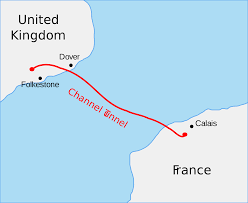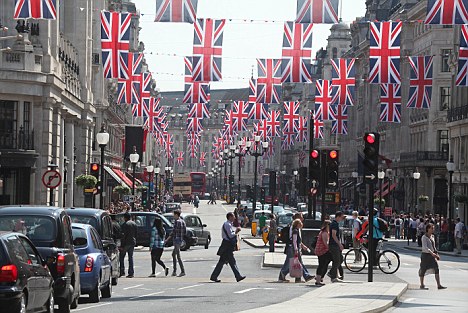 By Ray Rivers
By Ray Rivers
June 24th, 2016
BURLINGTON, ON

The Chanel- the history it has experienced. Now more than a body of water – a divide.
The United Kingdom (UK) has just voted decisively to leave the European Economic Community (EEC) and European Union (EU), which it had first joined in 1973. The Common Market, as it was also called, was founded in 1957 in part to propel the still broken post war economies and to avoid emerging conflicts among the original six nations in the Treaty of Rome.
Two years later (1975) Britain’s membership was confirmed overwhelmingly by a referendum to resolve forever Britain’s place in Europe. UK Independence Party leader, and Brexit champion, Nigel Farage was eleven years old at the time of the referendum. And Prime Minister David Cameron, who has just announced his resignation and that of his government, was two years younger. Forever can look like a long time when you are nine.
Cameron had been generally well regarded by almost everyone, winning a respectable majority in the last British election. But he misjudged how his country felt about British sovereignty and its adherence to key EU principles. So in true Shakespearean fashion he has now fallen on his sword for this most serious error in judgement – the referendum. Brexit, as it was called, should be a lesson to all who think that administering simple polls on complicated and strategic matters to the great unwashed is the answer to anything.
British politicians of all stripes are speaking softly, urging calm, and claiming it will take years for the Brexit to take effect. But that is not how the rest of the EU see it. They have demanded a quick exit in the interests of economic and political stability for what remains of their union. That after all was the primary raison d’être for the creation of the EU.
One should always be careful of that which one wishes. Big change can be chaotic and chaos creates its own consequences. So even before the results were complete the world witnessed one of the most stable global currencies, the British pound, crash to lows not seen since 1985. The next day financial giant Morgan Stanley claimed it was heading to a safe landing on the mainland, deserting London as the former banker for the EU.
Pro-EU Scotland, in union with England since the 1600’s, is mulling a redo of its own independence referendum in order to stay in the EU. Northern Ireland is being courted to join its southern EU cousin in the main republic, something considered unthinkable only a decade ago. And now Spain is demanding a governing stake in Gibraltar. Oh what a difference a day makes as that proverbial sun sinks even further on the vestiges of a once great Britain.

The Union flag flying in Regent street.
No longer so united but still a kingdom, albeit with a potentially much simpler Union Jack. Without North Sea Oil, Irish and Scotch whiskey, and no place to vacation, the lonely English will have to content themselves with gin and tonics in Blackpool or Brighton. Even Pimms #1 is now owned by the bleedin’ Europeans. Seriously, overnight the UK economy fell from 5th to 6th place in global standing, ironically sucking up to the derrière of former arch rival, France.
Immigration was a significant part of the discussion for most Britons, notwithstanding that Cameron had wrung exceptional, and unexpected, immigration control concessions from other EU leaders. Brits will likely see an exodus of continentals, including a million or so Polish nationals vacating recessionary England for jobs back home in one of the fastest growing EU economies. And that may in some measure be balanced by the return of at least some of the Brit expats living in places like Spain and France and all those tourists now lacking an EU passport.
Canada and the US will be impacted in a number of ways. For example, there was the process of finalizing free-trade agreements with the EU, championed to a large part by the Brits, despite strong objections by Germany and others. But the UK will still be a major player in NATO, though joint military procurement is likely to suffer as the EU finally moves its much promised common defence policy to the next level.
One foot in and one out, best described the UK approach to the EU anyway. Britain wanted the benefits of the marriage but refused to get completely naked and under the covers with its bed mates. She lacked commitment to the marriage, retaining her historical trappings as a way of maintaining her distance – the pound, rules of the road, gallons and miles and so on. And there has always been a measure of upper-nose smugness, that the ‘old chaps’ are better bred and come from superior homes than those dingy quarrelsome continentals.
But rejection is the toughest part of any in a relationship. And England has just told her continental suitors to powder off, spurning their interest, consideration, tolerance, warmth and even love – turning 19 nautical miles into an ocean away. The European reaction is really yet to come, but I’d bet on a hefty dose of tough love. To paraphrase the distinguished17th English playwright, William Congreve – hell hath no fury like a partner spurned.

Ray Rivers is an economist and author who writes weekly on federal and provincial issues, applying his 25 years of involvement with federal and provincial ministries. Rivers’ involvement in city matters led to his appointment as founding chair of Burlington’s Sustainable Development Committee. He was also a candidate in the 1995 provincial election
Background links
Implication for Brit tourists –



















What a dour outlook, Mr. Rivers. Britain has always been a resilient nation and will bounce back from this. This might be the best thing for the EU. There are other countries toying with similar referenda and I would guess the EU will move heaven and earth to appease any separation notions in the future. Who knows, maybe democracy will finally take root on the Continent.
As to the sine qua non cause of the British disenchantment with the EU, I think Germany’s Angela Merkel can take a deep bow at this point and accept the bouquet. How stupid do you have to be just months away from a crucial UK referendum to open the floodgates to North Africans and Middle Easterners looking for a better deal? She symbolized everything that Brits thought was wrong about the EU and basically cut Cameron off at the knees.
If you think the markets are in for a bumpy ride, just wait for Trumpenomics when the new president gets himself elected. If there is a bright side, hopefully, this will also put an end to Harper’s ill-conceived and not-so free-trade pact between Canada and the EU.